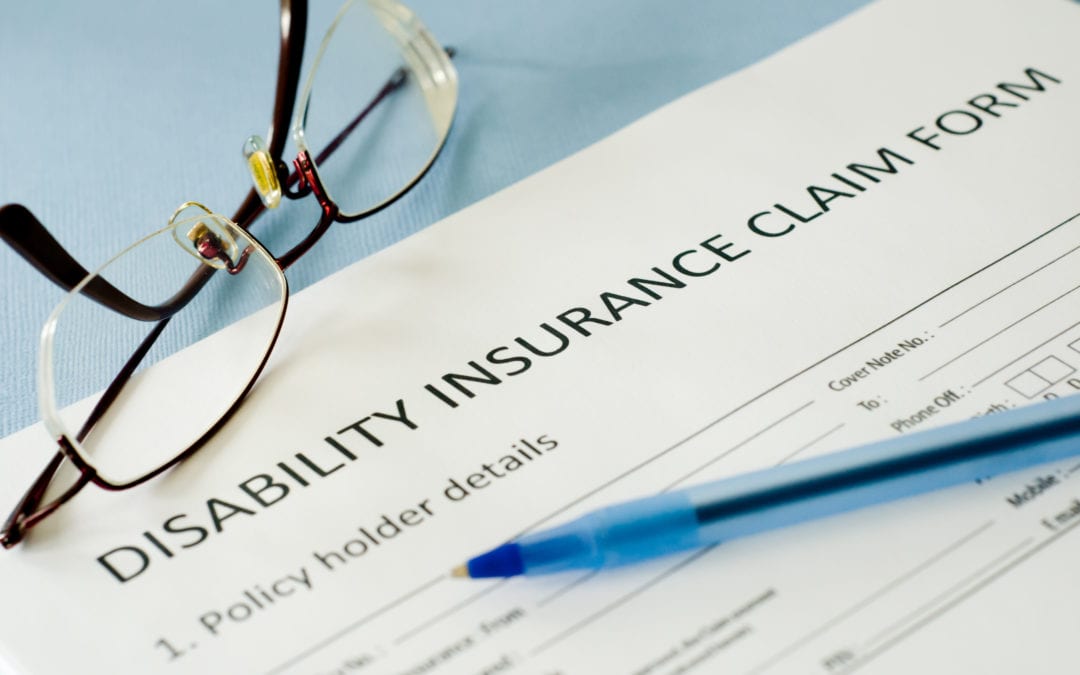Filing a disability insurance claim is stressful but having an understanding of the course of a claim and knowing what to expect can help relieve that stress.
Table of Contents
Complete and File the Disability Claim
What Does a Disability Claim Consist Of?
There are three parts to a disability claim:
- claimant’s statement
- occupational description
- attending physician statement
Claimant’s Statement
Claimants are required to complete a statement that explains the nature of their condition, state when it became disabling, and describe how the claimed disabling impairments prevent them from working. Many disability claimants have more than one impairment, which is known as a co-morbidity. It is important to list all conditions that either alone or in combination with one another result in disability.
One question that is typically found on the claimant’s statement is an inquiry into whether the disability is “work-related.” Most claimants assume that all disabilities are work-related because they preclude or limit working. However, the question is aimed at determining whether the claim is based on a work-related injury or illness and might also be the basis of a workers’ compensation claim.
Occupational Description
The occupational description is provided by the claimant if the application is for individual disability benefits but is provided by the employer if the application is made under an employer-sponsored group disability policy. Insurers inquire about length of employment, job duties, and salary; and for certain professions, the insurers usually request additional occupational data. For example, medical professionals are usually asked to provide information about the specific services (i.e., surgery) they performed prior to the onset of disability, and lawyers are often asked whether they are litigators or performed transactional work.
Attending Physician Statement
The attending physician statement (APS) is completed by a doctor certifying your disability. If you have an impairment being treated by a specialist, we usually recommend that the APS be completed by that specialist rather than a primary care physician. The APS form usually asks for a diagnosis, a statement as to any physical, mental or cognitive limitations or restrictions caused by the disabling conditions, a statement as to when the condition became disabling, a description of the treatment plan, and a prognosis.
Insurance Carrier Analyzes the Disability Claim
What Happens After the Claim Is Filed?
Most insurers promptly send claimants a letter of acknowledgement of receipt of a claim and usually follow up with a call to gather additional information about the insured’s occupation and treatment. If not submitted with the initial claim documentation, the claimant will also be asked to complete HIPAA-compliant medical authorization forms so the insurance company can gather additional medical records needed to assess the disability. In some instances, the insurance company schedules a meeting with a field representative to gather more detailed information.
What Happens Next? Claim Approval or Further Surveillance
It usually takes at least 90 days for a long-term disability claim to be approved. Short-term disability claims are approved much more quickly, but usually only for short periods at a time pending receipt of additional medical documentation. Short-term disability claims can often be approved shortly after the insurer receives the certification of a serious medical condition that would be submitted as part of a Family and Medical Leave Act claim.
The reason it takes a lengthy period of time for a long-term disability claim to be approved is that the insurance company wants to review all relevant medical evidence in order to verify the claimant’s disability. In some circumstances, if the claimant’s disability is unclear or uncertain based on the medical records, the insurance company will schedule an examination with a doctor of its choosing or may perform surveillance to verify a claimant’s level of activity.
How Common are Exams and Surveillance in a Disability Claim Process?
Insurance company examinations are not common. Electronic medical records have made the job of understanding a claimant’s impairment easier for the insurance companies; and the insurance companies either have medical specialists on staff or can contract to receive specialist medical file reviews to assist in determining disability.
Surveillance is also not as common as popularly imagined. Surveillance is expensive and rarely yields results that would dictate an unfavorable outcome. For example, surveillance showing a doctor driving to the pharmacy to pick up a prescription is hardly informative as to whether that doctor can perform brain surgery.
What is becoming more common, though, is a search of social media. Even with highly restrictive privacy settings, claimants should assume the insurance company can read their social media posts. Therefore, claimants should be thoughtful about what they post and not invent fictitious jobs posted on LinkedIn to try to create an impression of continuous employment or re-post old vacation pictures on Facebook to try to show the claimant is leading a normal life.
Claim Approval or Claim Denial & Appeal
Most claims end up being approved, especially if the attending doctor’s opinion is verified by objective medical test findings. Indeed, most claimants praise the customer support provided by insurance companies.
However, even meritorious claims are sometimes denied. If that occurs, no claimant should just walk away and assume they lack the resources to fight a multi-billion dollar insurance company.
In most instances the insurance company will offer the claimant an appeal; and if disability coverage is provided under an employer-sponsored policy, at least one appeal (and sometimes two) is mandatory. Claimants typically have 180 days to submit an appeal from a disability benefit denial; and once the appeal is submitted, the insurance company can take as long as 90 days to decide the appeal.
The insurance company is required to share a copy of its claim file without charge upon request; and following the submission of an appeal, if the insurance company obtains additional evidence, it is required to share that evidence with the claimant and give the claimant the opportunity to respond before a final determination is issued.
If the appeal is successful, benefits will be paid retroactively to the date they were scheduled to commence. If the appeal is unsuccessful, the claimant can file a lawsuit against their insurance company. Depending on whether the claim is brought under an individual insurance policy or a group policy provided by an employer, it may be necessary to bring the case in federal court.
For additional guidance, please review our article on how to file an effective ERISA claim.
Do I Need a Lawyer to File a Disability Claim or Respond to a Denied Claim?
Claimants do not necessarily need a lawyer to submit a claim, but it can be helpful to consult with a lawyer even before submitting a claim to avoid any missteps. If, however, the claim is denied, no one should submit a claim appeal on their own and should immediately seek legal assistance from an attorney experienced in handling disability insurance denials. Not all attorneys have such experience; and even lawyers who routinely handle Social Security disability claims may not possess relevant experience.
The attorneys at DeBofsky Law have the knowledge and experience to present the strongest appeal possible; and also have decades of experience in handling ERISA and individual policy disability insurance cases in courts across the country. We will fight for you!







